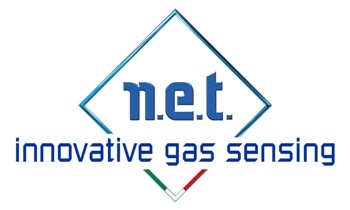The leading sensing technologies in refrigerant leak detection are, without a doubt, Non-Dispersive Infrared (NDIR) and Metal-Oxide Semiconductor (MOS). NDIR offers the greatest performance, yet thanks to its lower cost, MOS has continued to be the prevalent sensing technology employed in light commercial and residential applications.
.jpg)
Non-Dispersive Infrared Versus Metal-Oxide Semiconductor
The accessible price point for MOS has made it the go-to option for settings such as food retail, hotel rooms, apartments and offices, despite the fact that it needs regular calibration (usually every six months or less) and must be replaced every two to four years.
MOS also suffers interference from a number of chemicals beyond the target gas and is dependent on environmental conditions for effectiveness.
The dominance of MOS is about to be challenged thanks to the newly developed IREF LITE series from N.E.T. – a comprehensive range of NDIR sensors for refrigerant gas leak detection, about to be released at outstanding prices.
This will allow for the gas selectivity, accuracy, poison immunity and extended lifetime of NDIR technology to become a financially accessible option for any setting, greatly increasing the performance of gas detection in the HVAC-R market, and offering occupants great safety alongside lower ownership costs.
IREF Lite Series from N.E.T.
The IREF Lite series from N.E.T. includes solutions for R-32, R-1234yf and R-1234ze in %LEL range. In 2019, the series will be expanded to include a number of other refrigerant gases.
.jpg)
The analog output offers a threshold output consisting of different voltage levels that can be programmed by the user, or by default, is set to 10% LEL=1V, 15% LEL=2V.
The user has the option to select the output level, the corresponding output and the hysteresis of the thresholds at will, using Modbus RTU commands.
Indeed, the digital communication offered through Modbus RTU enables full access to the sensor functioning parameters, diagnostics and periodic recalibration.
The standard industrial 7-series is much more compact than the majority of NDIR-based alternatives on the market, and its size and pinout are compatible with existing detectors.
Conclusion
To ensure optimum safety levels, IREF LITE has been developed in line with requirements in SIL1. SIL is a quantitative measurement of a system’s ability to enact its safety function when ordered to do so.

This information has been sourced, reviewed and adapted from materials provided by Nano Environment Technology (N.E.T).
For more information on this source, please visit Nano Environment Technology (N.E.T).